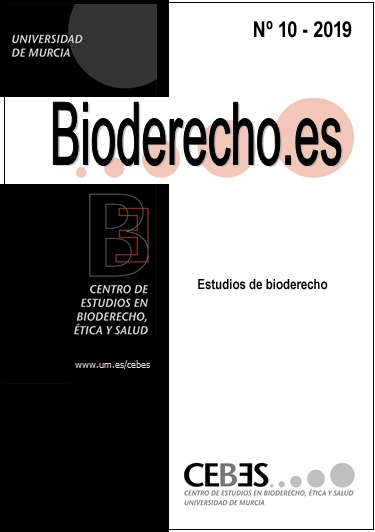Law, disability(s) and sexuality(ies) : between specificities and normality
Abstract
If law has been present indirectly for a long time around this issue - through the categorization of disability, its institutional and financial attention and the criminal and civil framework of the situations that people with disabilities may experience in their daily lives, including their sexual and emotional lives - the jurists, who are very present today (including Bruno Py, who is one of the pioneers in this field), were still largely absent from this problem ten years ago. Indeed, it is a field that has been studied mainly by psychoanalysts, psychologists and sociologists, as evidenced by the large number of books and collective or individual articles published in specialized or general scientific journals on the subject in these disciplinary fields, since the 1980s, in France and abroad. The recent (or late) presence of jurists, some of whose pioneers are associated with this research, which nevertheless remains marginal, is explained by reasons that are probably mainly circumstantial. The reasons for this late (or recent) presence of jurists are also related to the demand for standardisation on the part of the disability stakeholders themselves who seek to standardise, or even codify, their individual reactions to certain emotionally strong situations, and to value certain innovative experiments and "good practices" in this field. The legitimacy of the legal approach, complementary to that of other social sciences, results not only from the function of law as a receptacle for society's values, but also from its function as a force for social transformation,[1] beyond popular consensus. The imperative of the rule of law, combined with the legitimacy of its democratic mode of production, is in reality a vector of great transformations that often force or anticipate great social changes. If the prism of the law contains certain deficiencies, among them that of categorical and verbal confinement, the prism of rights, and in particular of the so-called "fundamental" rights, has the merit of being based on a system of values that implies an ethical approach to the subject. The interaction of the mechanisms of recognition, interaction, confrontation and conciliation of rights, on the part of both the judge and the legislator, necessarily implies an ethical approach. However, if sexuality tells us something about society's relationship with the truth, this truth may be that of society itself as well as its power relations, but also that of man, especially when it comes to man trapped in his consubstantial vulnerability, which appears in all light in the case of disability, which is ultimately only an additional degree of vulnerability that challenges us and brings us back to our first condition.
Translated with www.DeepL.com/Translator
Downloads
-
Abstract797
-
PDF (Español (España))485
Los autores que publican en esta revista están de acuerdo con los siguientes términos:
- Los autores conservan los derechos de autor y garantizan a la revista el derecho de ser la primera publicación del trabajo, con la obra disponible simultáneamente bajo una licencia Creative Commons Atribución-Compartir Igual 4.0 Internacional (CC BY-SA 4.0), que permite a otros copiar y redistribuir la obra en cualquier medio o formato, remezclar, transformar y construir a partir de la obra para cualquier propósito, incluso comercialmente, siempre que: a) se reconozca la autoría y publicación inicial en esta revista; b) se indiquen los cambios realizados; y c) si se transforma o crea a partir de la obra, se distribuya la contribución bajo la misma licencia CC BY-SA 4.0.
- Los autores pueden establecer por separado acuerdos adicionales para la distribución no exclusiva de la versión de la obra publicada en la revista (por ejemplo, situarlo en un repositorio institucional o publicarlo en un libro), con un reconocimiento de su publicación inicial en esta revista.
- Se permite y se anima a los autores a difundir sus trabajos electrónicamente (por ejemplo, en repositorios institucionales o en su propio sitio web) antes y durante el proceso de envío, ya que puede dar lugar a intercambios productivos, así como a una citación más temprana y mayor de los trabajos publicados (Véase The Effect of Open Access) (en inglés).



